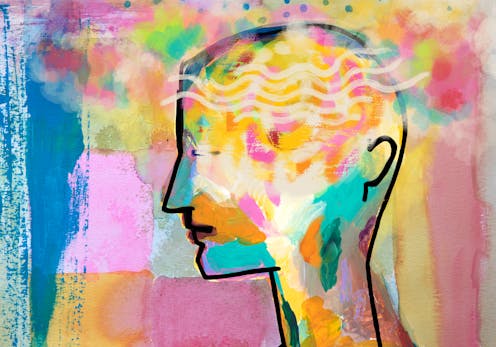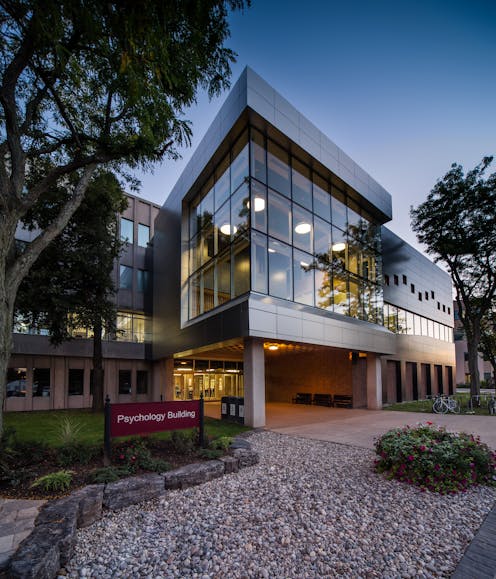Introduction: The Role of Art Therapy in Addiction Recovery
Art therapy is a form of therapy that utilizes the creative process of making art to improve a person’s physical, mental, and emotional well-being. It has been recognized as a valuable tool in addiction recovery, as it allows individuals to express their thoughts and emotions in a non-verbal and non-threatening way. Art therapy is a holistic approach to treatment, addressing the underlying issues that contribute to addiction and promoting overall healing and well-being.
Holistic treatment is an approach that considers the whole person – mind, body, and spirit – in the recovery process. It recognizes that addiction is not just a physical dependence on a substance, but also a complex interplay of psychological, emotional, and social factors. By addressing these underlying issues through art therapy, individuals in addiction recovery can gain a deeper understanding of themselves and develop healthier coping mechanisms.
Understanding Addiction and the Importance of Holistic Treatment
Addiction is a chronic disease characterized by compulsive drug seeking and use, despite harmful consequences. It affects millions of individuals and their families, and has a significant impact on society as a whole. Traditional treatment methods for addiction often focus solely on detoxification and abstinence, without addressing the underlying issues that contribute to addictive behaviors. This limited approach can lead to high relapse rates and a lack of sustained recovery.
Holistic treatment recognizes that addiction is a multi-faceted issue that requires a comprehensive approach. It acknowledges that addiction is often a symptom of deeper emotional and psychological issues, such as trauma, low self-esteem, or unresolved grief. By addressing these underlying issues through art therapy, individuals in addiction recovery can gain a deeper understanding of themselves and develop healthier coping mechanisms.
The Benefits of Art Therapy in Addiction Recovery
Art therapy offers a wide range of benefits for individuals in addiction recovery. One of the key benefits is emotional expression. Many individuals struggling with addiction have difficulty expressing their emotions verbally, and art therapy provides a safe and non-threatening outlet for them to express themselves. Through the creative process, individuals can explore and express their feelings, thoughts, and experiences in a visual and tangible way.
Art therapy also provides stress relief. The process of creating art can be calming and meditative, allowing individuals to relax and reduce their stress levels. This can be particularly beneficial for individuals in addiction recovery, as stress is often a trigger for relapse. By engaging in art therapy, individuals can learn healthy ways to manage stress and reduce their risk of relapse.
Additionally, art therapy promotes self-discovery. Through the creative process, individuals can gain insight into their own thoughts, feelings, and behaviors. They can explore their strengths, weaknesses, and areas for growth. This self-discovery can be empowering and can help individuals in addiction recovery develop a stronger sense of self and a greater understanding of their own needs and desires.
Virtual Art Therapy: What is it and How Does it Work?
Virtual art therapy is a form of art therapy that is conducted online, using video conferencing platforms and digital art tools. It allows individuals to engage in art therapy sessions from the comfort of their own homes, making it more accessible and convenient for those who may have difficulty accessing traditional in-person sessions.
During virtual art therapy sessions, individuals work with a trained art therapist who guides them through the creative process. The therapist may provide prompts or themes for the artwork, or they may allow the individual to freely express themselves. The individual creates their artwork using digital art tools, such as drawing tablets or computer software, and shares their work with the therapist through the video conferencing platform.
How Virtual Art Therapy is Making Addiction Recovery More Accessible
Traditional art therapy sessions are often conducted in a clinical setting, which can be a barrier for individuals in addiction recovery. Many individuals may feel uncomfortable or stigmatized in a clinical environment, and may be hesitant to seek help. Virtual art therapy overcomes this barrier by allowing individuals to engage in therapy from the comfort and privacy of their own homes.
Virtual art therapy also overcomes geographical barriers. In rural areas or areas with limited access to mental health services, individuals may struggle to find an art therapist who specializes in addiction recovery. Virtual art therapy allows individuals to connect with therapists from anywhere in the world, expanding their options and increasing their chances of finding a therapist who is the right fit for them.
Additionally, virtual art therapy offers greater flexibility. Individuals in addiction recovery often have busy schedules or may be juggling multiple responsibilities, such as work or family. Virtual art therapy allows individuals to schedule sessions at a time that is convenient for them, making it easier to incorporate therapy into their daily lives.
The Advantages of Virtual Art Therapy Over Traditional Methods
Virtual art therapy offers several advantages over traditional in-person sessions. One of the key advantages is increased accessibility. As mentioned earlier, virtual art therapy allows individuals to engage in therapy from anywhere in the world, overcoming geographical barriers and increasing access to care. This is particularly beneficial for individuals in rural areas or areas with limited mental health services.
Virtual art therapy also offers increased privacy. Some individuals may feel uncomfortable or stigmatized in a clinical setting, and may be hesitant to seek help. Virtual art therapy allows individuals to engage in therapy from the privacy of their own homes, reducing the fear of judgment or stigma. This increased privacy can create a safe and supportive environment for individuals in addiction recovery to explore their thoughts and emotions.
Additionally, virtual art therapy offers greater flexibility. Individuals in addiction recovery often have busy schedules or may be juggling multiple responsibilities, such as work or family. Virtual art therapy allows individuals to schedule sessions at a time that is convenient for them, making it easier to incorporate therapy into their daily lives. This flexibility can increase engagement and improve outcomes in addiction recovery.
Success Stories: Real-Life Examples of Virtual Art Therapy in Addiction Recovery
There are many real-life examples of individuals who have benefited from virtual art therapy in their addiction recovery journey. One such example is Sarah, a 35-year-old woman who struggled with alcohol addiction for many years. Sarah found it difficult to attend in-person therapy sessions due to her work schedule and fear of judgment. She decided to try virtual art therapy and found it to be a transformative experience. Through the creative process, Sarah was able to express her emotions and gain insight into the underlying issues that contributed to her addiction. She developed healthier coping mechanisms and was able to maintain her sobriety.
Another example is John, a 45-year-old man who struggled with opioid addiction. John lived in a rural area with limited access to mental health services, and found it difficult to find an art therapist who specialized in addiction recovery. He decided to try virtual art therapy and was able to connect with a therapist from a different state. Through virtual art therapy, John was able to explore his emotions and gain a deeper understanding of himself. He developed a strong support system and was able to overcome his addiction.
These success stories highlight the impact of virtual art therapy on the recovery process. Virtual art therapy offers individuals in addiction recovery a safe and accessible way to explore their thoughts and emotions, develop healthier coping mechanisms, and gain a deeper understanding of themselves.
The Future of Virtual Art Therapy in Addiction Recovery
The future of virtual art therapy in addiction recovery is promising. As technology continues to advance, virtual art therapy will become even more accessible and immersive. Virtual reality (VR) technology, for example, has the potential to create a more immersive and interactive art therapy experience. Individuals will be able to create art in a virtual environment, allowing for a greater sense of presence and engagement.
There is also a need for continued research and development in the field of virtual art therapy. While there is a growing body of evidence supporting the effectiveness of art therapy in addiction recovery, more research is needed to understand the specific mechanisms of change and to develop evidence-based practices. This research will help to further validate virtual art therapy as a valuable tool in addiction recovery and inform best practices.
Incorporating Art Therapy into Your Addiction Recovery Plan
If you are interested in incorporating art therapy into your addiction recovery plan, there are several steps you can take. First, it is important to seek professional guidance and support. A trained art therapist can help you navigate the creative process and provide guidance and feedback. They can also help you explore the underlying issues that contribute to your addiction and develop healthier coping mechanisms.
You can also explore virtual art therapy options. There are many online platforms and resources that offer virtual art therapy sessions. It is important to do your research and find a reputable provider who specializes in addiction recovery. Look for providers who have experience and training in art therapy and who have a strong understanding of addiction and recovery.
Finally, it is important to make art therapy a regular part of your recovery plan. Set aside time each week to engage in the creative process and explore your thoughts and emotions. Make it a priority and commit to the process. Remember that art therapy is a journey, and it may take time to see the full benefits. Be patient with yourself and trust in the process.
Conclusion: The Power of Art Therapy in Overcoming Addiction
In conclusion, art therapy is a powerful tool in addiction recovery. It allows individuals to express their thoughts and emotions in a non-verbal and non-threatening way, promoting healing and self-discovery. Virtual art therapy is making addiction recovery more accessible by overcoming barriers to access and offering increased privacy and flexibility. The future of virtual art therapy is promising, with advancements in technology and continued research and development. By incorporating art therapy into their addiction recovery plan, individuals can gain a deeper understanding of themselves, develop healthier coping mechanisms, and achieve long-term recovery.
Find out how Torongo Therapyplus can help you with your needs. Get in touch with us at smile@torongo.life, or call us on 02 8809 9965.






























